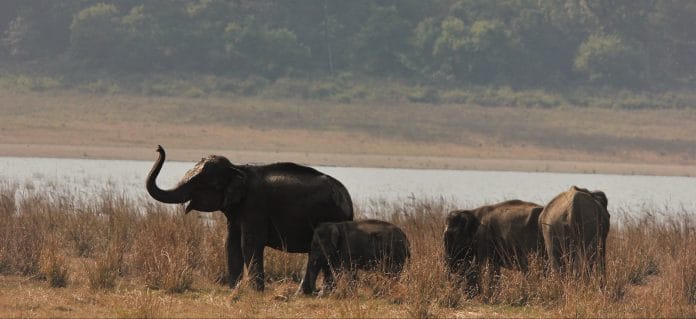Even after the Uttarakhand HC freed them, the govt hadn’t taken action. But then, overnight, the elephants were relocated to Rajaji National Park.
New Delhi: Last week, the Uttarakhand High Court ordered that seven captive elephants in the state be freed from the custody of private individuals who used the animals for commercial joyrides. It ended years of sustained abuse and neglect, and ensured a natural, cruelty-free habitat for them.
The 3 August order came while hearing a public interest litigation (PIL) regarding encroachments around Corbett Tiger Reserve, but was not followed up by the state authorities immediately. Then, on 10 August, a notice to the state government by animal rights activist Gauri Maulekhi regarding non-compliance ensured that the elephants were relocated to Rajaji National Park overnight.
Maulekhi, member secretary of People for Animals (PFA), who has followed the case of these captive jumbos for several years, said: “All the female elephants are now getting veterinary care previously denied to them, and are now under the supervision of the forest department, where they legally belong.”
Also read: Maneka Gandhi accuses animal panel members of using national emblem to influence & extort
Cruelty galore
In her notice, citing several levels of violation of animal protection rules, Maulekhi wrote that the elephants are in a poor state of health, with many suffering from foot rot, blindness, lameness, presence of abnormal gait, injuries showing signs of torture. In her notice, also sent to the registrar of the Uttarakhand High Court, Maulekhi said even the tusks of several elephants had been removed/trimmed without the permission from the forest department.
Noting the violations, a bench of justices Rajiv Sharma and Lokpal Singh had said: “A startling revelation has been made before the court by C.K. Sharma and Dharmendra Barthwal, advocates, that the elephants are chained, ill-treated and (a) few elephants are blind but still being used commercially by the owners of the resorts in Corbett Tiger Reserve area, causing immense cruelty to the elephants. Their conditions are pathetic. Their captivity is in violation of Sections 40 and 42 of Wildlife Protect Act, 1975.”
Also read: Modi govt pushed for a ‘uniform cattle protection law’ after rollback of animal market rules
Not a one-state problem
While Uttarakhand may have led the way in this regard, there are many states where blind, injured and bruised elephants continue to be used by resort and travel group owners in violation of the Wildlife Protection Act (1972).
“There are similar pending cases in Kerala and Rajasthan, where hundreds of elephants are in the captivity of private owners. The Uttarakhand order will act as a precedent for all such cases,” Maulekhi said.
In May this year, the Amer Court in Rajasthan had ruled (on a petition by Maulekhi) that a 10-year-old rescued elephant calf be seized by the state wildlife department. However, cases against 74 individuals are pending in this court, Maulekhi said.
A recent report by the Animal Welfare Board of India (AWBI) had revealed that one in every four elephants used for joyrides at the Amer Fort is either visually impaired or suffering from tuberculosis and severe psychological stress.






